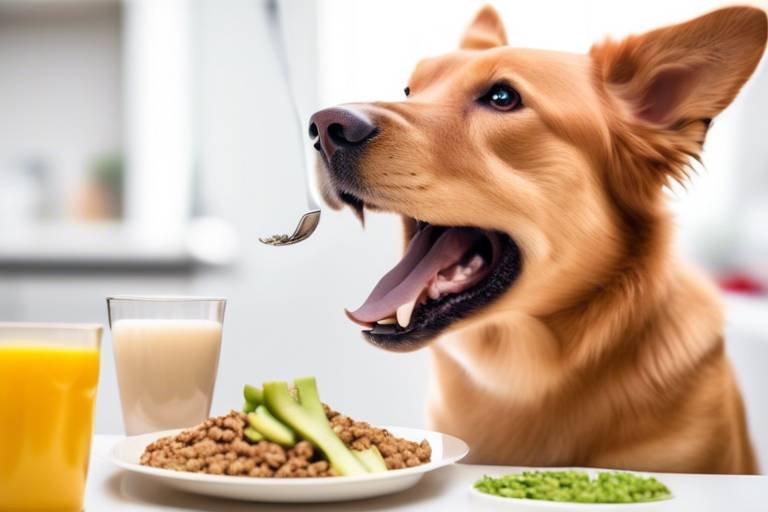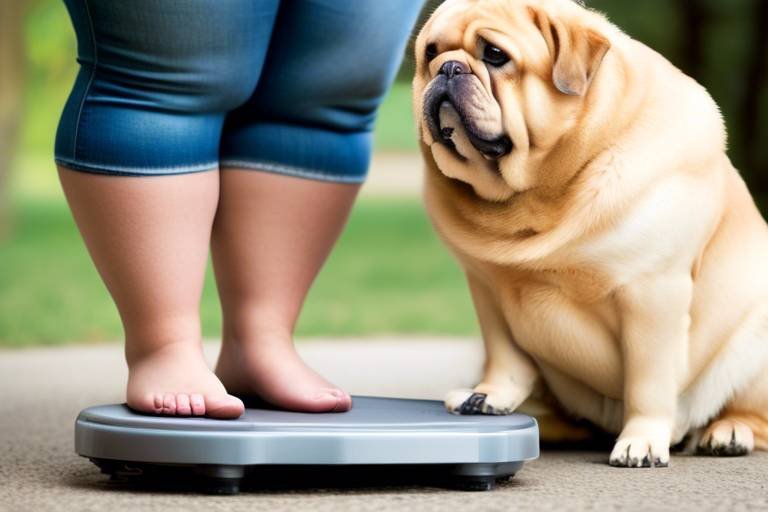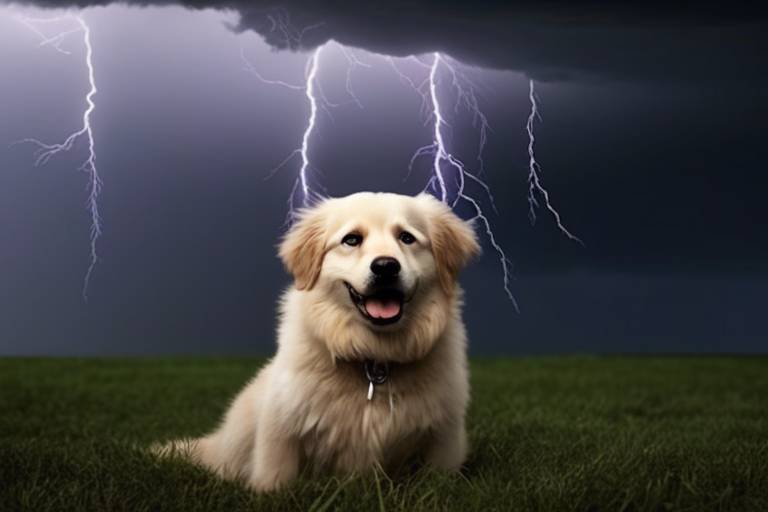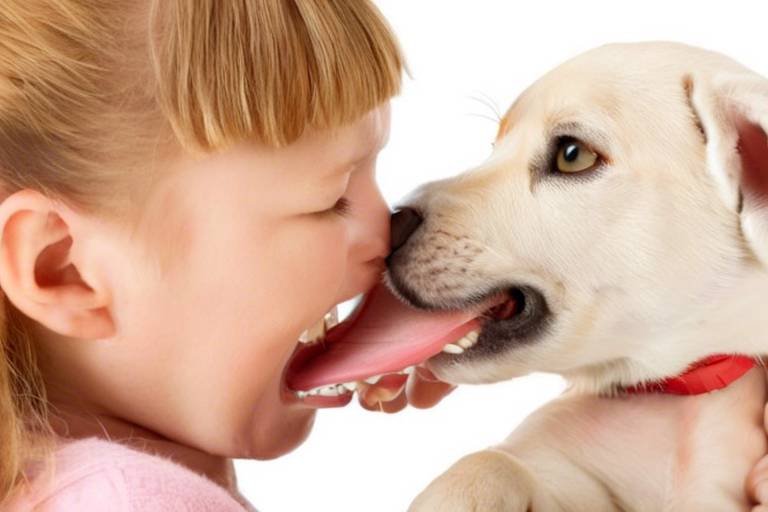Essential Vaccines for Pets - What You Need to Know
When it comes to keeping our furry companions happy and healthy, vaccination plays a crucial role. Just like humans, pets are vulnerable to a host of diseases that can be prevented through proper vaccination. This article dives into the essential vaccines your pets need, the benefits of these vaccines, potential side effects, and the recommended vaccination schedules to ensure your beloved animals remain healthy and protected. Imagine a world where your pet can romp around without the fear of deadly diseases lurking around the corner. That’s the power of vaccination!
Understanding the significance of vaccinations for pets is crucial. Vaccines not only protect individual animals but also contribute to herd immunity, which reduces the spread of infectious diseases in the pet community. Think of it as a protective shield: when a majority of pets are vaccinated, the chances of disease outbreaks drop significantly. This is particularly important for pets that interact with others at parks, grooming salons, or during playdates. By vaccinating your pet, you're not just safeguarding their health, but you're also playing a part in protecting other pets around them.
Core vaccines are essential for all dogs, protecting them against serious diseases that can threaten their lives. These vaccines are not just recommendations; they are vital components of a comprehensive health plan for your canine companion. The most important vaccines every dog should receive include rabies, parvovirus, and distemper. Each of these vaccines targets specific diseases that can have devastating effects on your pet’s health.
The rabies vaccine is mandatory in many regions, and for good reason. Rabies is a deadly virus that affects the brain and spinal cord, and it is transmissible to humans. This subsection discusses its importance, legal requirements, and the potential consequences of not vaccinating against this deadly virus. In many places, failure to vaccinate your dog against rabies can lead to legal repercussions, not to mention the serious health risks involved. Protecting your pet from rabies is not just a choice; it’s a responsibility.
Distemper and parvovirus are highly contagious and often fatal diseases that can affect dogs of all ages. Here, we explain the necessity of these vaccines, how they work, and the recommended vaccination schedule. Distemper can cause severe respiratory, gastrointestinal, and neurological issues, while parvovirus is notorious for its ability to cause severe vomiting and diarrhea, leading to dehydration and death. Vaccinating your dog against these diseases is like giving them a suit of armor—one that can save their life.
Just like dogs, cats also require core vaccinations to ensure they stay healthy. The essential vaccines for felines include rabies, feline viral rhinotracheitis, and panleukopenia. These vaccines are crucial in preventing diseases that can severely affect your cat’s health and wellbeing. Cats are often exposed to other animals, especially if they go outdoors, making vaccination even more important.
The feline leukemia vaccine is crucial for cats, especially those that go outdoors. This subsection discusses the risks of feline leukemia and the vaccine's role in prevention. Feline leukemia is a viral disease that can lead to cancer and other serious health issues. By vaccinating your cat, you’re not only protecting them but also ensuring they can enjoy their outdoor adventures without the constant worry of contracting this dangerous virus.
A proper vaccination schedule is vital for your pet’s health. This section outlines the recommended timeline for vaccinations, including initial shots and booster doses for both dogs and cats. Generally, puppies and kittens should start their vaccinations at a young age, often around six to eight weeks. Regular booster shots will help maintain their immunity as they grow. Consult with your veterinarian to create a tailored vaccination plan that suits your pet’s unique needs.
While vaccines are generally safe, they can cause side effects. Here, we discuss the common and rare reactions pets may experience post-vaccination and when to seek veterinary advice. Common side effects may include mild fever, lethargy, or soreness at the injection site. These symptoms are usually short-lived and should resolve within a couple of days. However, if your pet experiences severe reactions such as difficulty breathing or swelling, it’s crucial to seek veterinary attention immediately. Remember, the benefits of vaccination far outweigh the risks!
Regular consultations with your veterinarian are essential for determining the appropriate vaccination plan for your pet. This section emphasizes the importance of professional guidance in managing your pet's health needs. Your vet can provide insights based on your pet’s age, lifestyle, and health history, ensuring they receive the best possible care. Think of your veterinarian as your pet’s personal health coach, guiding you through the ins and outs of pet wellness.
- How often should my pet be vaccinated? - Vaccination schedules can vary, but most pets require initial shots followed by booster doses annually or every few years.
- Are there any risks associated with vaccines? - While side effects can occur, they are typically mild and temporary. Serious reactions are rare.
- Can I skip vaccinations? - Skipping vaccinations puts your pet at risk for serious diseases. Always consult your vet before making any decisions.
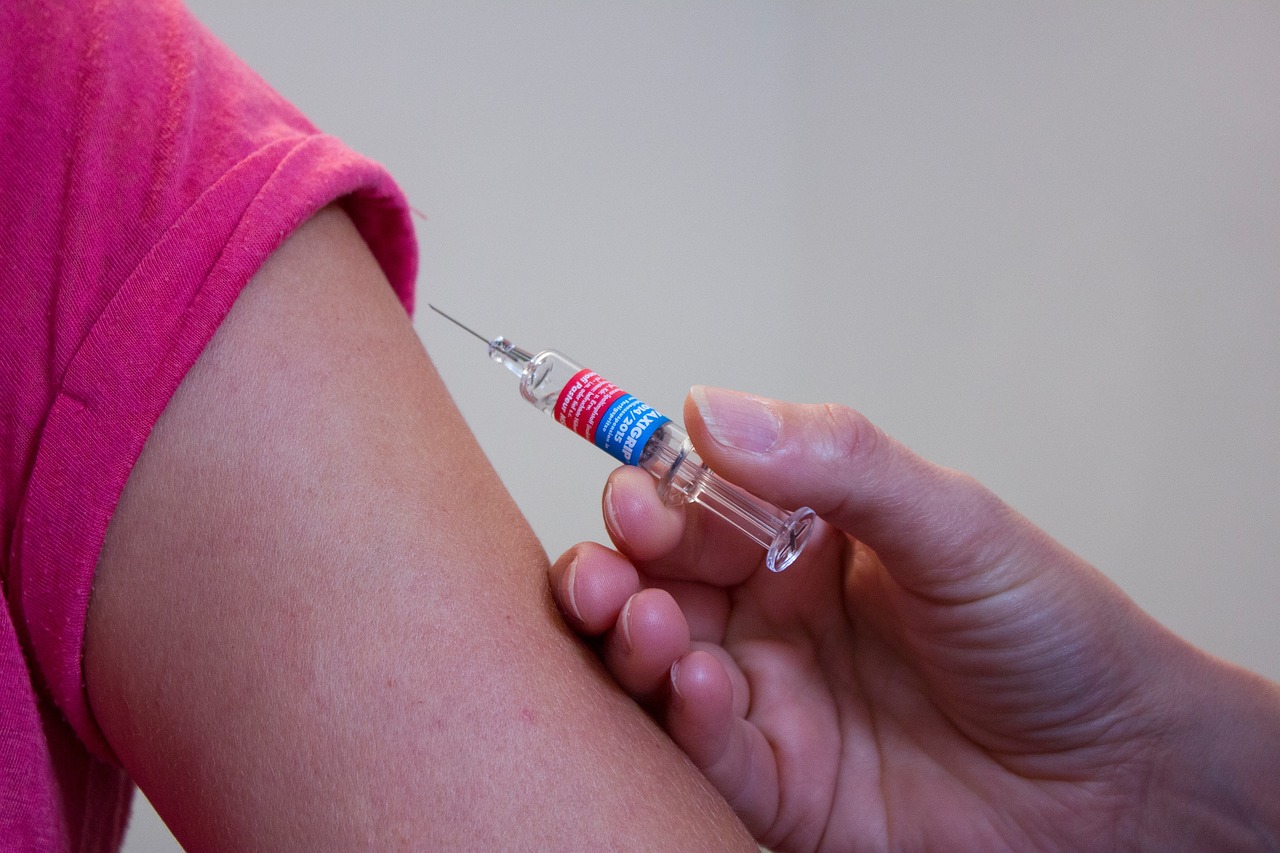
Importance of Vaccination
Understanding the significance of vaccinations for pets is crucial. Vaccines are like a superhero cape for your furry friends, providing them with the protection they need against various diseases. Imagine sending your dog or cat out into the world without any armor; it’s a risky business! Vaccinations not only safeguard individual pets but also play a vital role in promoting herd immunity. This means that when a large portion of the pet population is vaccinated, it significantly reduces the spread of infectious diseases within the community. It's not just about protecting your pet; it's about creating a safer environment for all.
When we talk about the benefits of vaccinations, we're diving into a pool of advantages that extend beyond just disease prevention. Vaccines help in:
- Reducing Disease Outbreaks: High vaccination rates can prevent outbreaks of diseases, keeping not just your pet but others safe.
- Lowering Veterinary Costs: Preventing diseases through vaccination can save you from costly treatments down the line.
- Enhancing Longevity: Vaccinated pets tend to live longer, healthier lives, contributing to a happier home.
Moreover, some diseases can be transmitted from animals to humans, known as zoonotic diseases. By vaccinating your pets, you're also helping to protect your family from potential health risks. It's like having a double shield! In essence, vaccinations are a fundamental aspect of responsible pet ownership, fostering a healthier community for both pets and their human companions.
However, it’s important to remember that vaccinations are not a one-time deal. Just like us, pets need regular updates to their immunizations to keep their defenses strong. This is where the role of your veterinarian becomes invaluable. They can provide tailored advice on which vaccines are essential for your pet based on their lifestyle, age, and health status.
In conclusion, the importance of vaccinations for pets cannot be overstated. They are a simple yet powerful tool in ensuring your pet lives a long, healthy, and happy life. By prioritizing vaccinations, you’re not just protecting your pet, but also contributing to the overall health of the pet community. So, let’s strap on those capes and keep our furry friends safe!
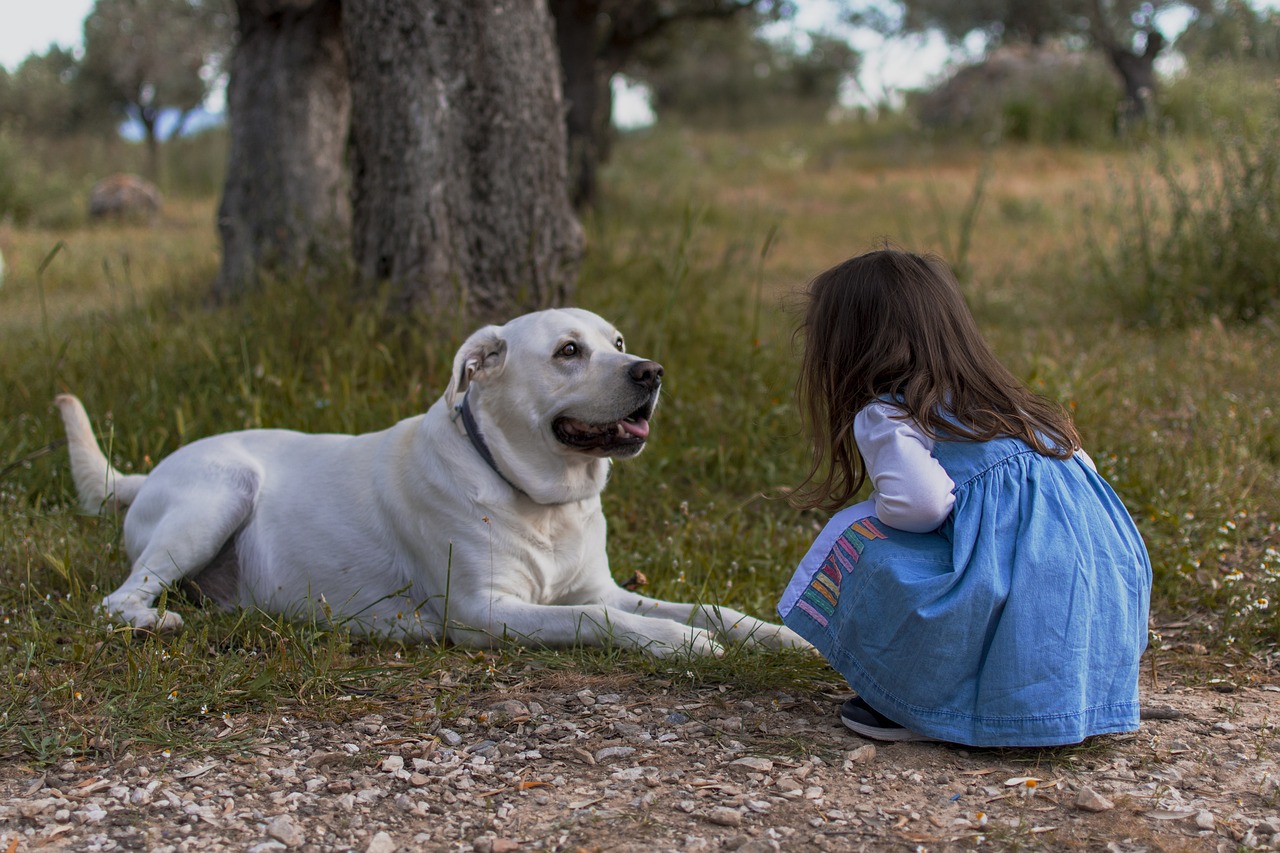
Core Vaccines for Dogs
When it comes to ensuring the health and well-being of our canine companions, core vaccines play a pivotal role. These vaccines are not just a recommendation; they are essential safeguards against serious, often deadly diseases that can affect dogs of all ages and breeds. Think of them as the first line of defense in your dog's health arsenal. By vaccinating your dog, you’re not only protecting them but also contributing to the overall health of the pet community. Let’s dive into the key vaccines every dog should receive, including rabies, parvovirus, and distemper.
The rabies vaccine is one of the most critical vaccinations for dogs and is mandated by law in many regions. Why is it so important? Rabies is a fatal viral disease that affects the brain and spinal cord, and it's transmissible to humans. This makes it not just a pet health issue but a public health concern as well. Vaccination against rabies usually occurs at around 12 to 16 weeks of age, with a booster shot given one year later. After that, many states require a booster every one to three years, depending on local regulations. Failing to vaccinate your dog against rabies can lead to severe legal consequences and, more importantly, could put your pet and family at risk.
Distemper and parvovirus are two highly contagious diseases that can have devastating effects on a dog’s health. Distemper is a viral illness that affects a dog’s respiratory, gastrointestinal, and central nervous systems, leading to severe health complications and often death. Parvovirus, on the other hand, is notorious for its ability to cause severe gastrointestinal distress, particularly in puppies. The good news is that both of these diseases are preventable through vaccination. The distemper and parvovirus vaccines are typically administered in a combination shot, often referred to as the DAPP vaccine, during a series of vaccinations that start at 6 to 8 weeks of age, with booster shots given every 3 to 4 weeks until the dog is about 16 weeks old.
In summary, core vaccines for dogs are crucial for preventing serious illnesses. Here’s a quick look at the core vaccines:
| Vaccine | Age to Vaccinate | Booster Frequency |
|---|---|---|
| Rabies | 12-16 weeks | 1-3 years |
| Distemper/Parvovirus (DAPP) | 6-16 weeks (series) | 1-3 years |
By staying on top of your dog's vaccination schedule, you can help them lead a longer, healthier life. It's like giving them a shield against the invisible threats lurking in the environment. So, don’t wait! Make sure your furry friend is up to date on their core vaccines and enjoy the peace of mind that comes with knowing they are protected.
Q: How often should my dog receive vaccinations?
A: Core vaccines are typically administered during puppyhood, followed by booster shots every one to three years, depending on the vaccine and local laws.
Q: Are there any side effects to vaccines?
A: While vaccines are generally safe, some dogs may experience mild side effects like lethargy or a slight fever. Serious reactions are rare but can occur.
Q: Can my dog still get sick if vaccinated?
A: Vaccines significantly reduce the risk of disease but do not guarantee complete immunity. Regular veterinary check-ups are essential for monitoring your dog's health.
Rabies Vaccine
The stands out as one of the most crucial vaccinations for pets, and for good reason. Rabies is a deadly virus that affects the nervous system of mammals, including humans. Once symptoms appear, rabies is almost always fatal. This makes vaccination not just a precaution but a necessity. In many regions, it's not just a recommendation; it’s a legal requirement to vaccinate pets against rabies. Imagine the horror of a loved one contracting a disease that could have been prevented with a simple shot. That's why getting your pet vaccinated is not just about compliance; it’s about ensuring their safety and the safety of those around them.
When it comes to understanding the importance of the rabies vaccine, let’s break it down. First, it protects your pet from a disease that can be transmitted through bites from infected animals. The vaccine stimulates the immune system to produce antibodies against the rabies virus, effectively training your pet's body to fight off the disease if exposed in the future. Furthermore, vaccinating your pet contributes to the broader concept of herd immunity. When a significant portion of the pet population is vaccinated, the spread of rabies can be significantly reduced, protecting those who may not be vaccinated.
In terms of legal ramifications, many states and countries mandate rabies vaccinations. Failing to vaccinate your pet can lead to hefty fines and, in some cases, the pet may be quarantined or put down if it is found to have been exposed to the virus. This is a harsh reality for pet owners, but it underscores the seriousness of the disease and the importance of vaccination.
So, when should your pet receive their rabies vaccine? Typically, the first dose is administered when your pet is around 12 to 16 weeks old, with a booster given one year later. After that, depending on local laws and your veterinarian's advice, boosters are usually given every one to three years. It’s essential to keep track of your pet’s vaccination schedule to ensure they remain protected.
In conclusion, the rabies vaccine is not just a shot; it’s a lifeline. It protects your furry friend from a lethal disease and helps safeguard the health of the community. As a responsible pet owner, ensuring your pet is vaccinated is one of the best decisions you can make. Remember, it’s always better to be proactive than reactive when it comes to your pet’s health!
- How often does my pet need the rabies vaccine? The rabies vaccine is typically given every one to three years, depending on local regulations and your veterinarian's recommendations.
- What are the side effects of the rabies vaccine? Most pets experience mild side effects such as soreness at the injection site, lethargy, or a slight fever. Serious side effects are rare but can include allergic reactions.
- Can my pet still get rabies if vaccinated? While the vaccine is highly effective, no vaccine offers 100% protection. However, vaccinated pets are much less likely to contract the virus.
- Is the rabies vaccine safe for older pets? Yes, the rabies vaccine is generally safe for older pets, but it's essential to consult your veterinarian for a tailored vaccination plan.
Distemper and Parvovirus Vaccines
The distemper and parvovirus vaccines are not just important; they are absolutely essential for your dog's health. Imagine your dog as a superhero, ready to take on the world, but without these vaccines, they would be vulnerable to two of the most dangerous villains out there. Distemper is a highly contagious disease that attacks multiple body systems, including the respiratory, gastrointestinal, and central nervous systems. On the other hand, parvovirus is notorious for causing severe gastrointestinal distress, especially in puppies, which can lead to dehydration and even death if not treated promptly.
Both of these diseases can spread like wildfire in environments where dogs congregate, such as parks, kennels, and doggy daycare centers. That’s why ensuring your dog receives these vaccines is crucial. The distemper vaccine is typically administered as part of a combination vaccine known as the DAP (Distemper, Adenovirus, Parvovirus), which helps protect against multiple diseases in one shot. For parvovirus, the vaccine is also included in this combination, making it a two-for-one deal that your vet will recommend during your puppy's initial vaccinations.
So, how do these vaccines work? When your dog receives the vaccine, their immune system is exposed to a harmless version of the virus, allowing it to build defenses. Think of it as a practice run for their immune system, preparing it to fight off the real thing if ever encountered. The recommended vaccination schedule usually starts when puppies are around six to eight weeks old, followed by booster shots every few weeks until they are about 16 weeks old. After that, adult dogs typically receive boosters every three years, but your veterinarian will provide the best guidance based on your dog's health and lifestyle.
In summary, vaccinating against distemper and parvovirus is like putting on a superhero cape for your dog. It empowers them to face the world with confidence, knowing they are protected against some of the most serious threats to their health. Make sure to stay on top of their vaccination schedule and consult your veterinarian for personalized advice to keep your furry friend safe and sound.
- What are the symptoms of distemper and parvovirus? Symptoms can vary but may include fever, coughing, vomiting, diarrhea, and lethargy. Early detection is key!
- Can adult dogs get distemper or parvovirus? Yes, adult dogs can contract these diseases if they are not vaccinated or if their immunity has waned.
- Are there any side effects to these vaccines? Common side effects are usually mild and may include soreness at the injection site or a slight fever. Serious reactions are rare but should be discussed with your vet.

Core Vaccines for Cats
Just like our canine companions, cats also require a set of core vaccinations to help protect them from serious and sometimes fatal diseases. These vaccines are critical in ensuring that your feline friend remains healthy and safe from various infections. Core vaccines are those that are recommended for all cats, regardless of their lifestyle, because they provide essential protection against widespread and dangerous diseases.
The rabies vaccine is one of the most crucial vaccinations for cats. Rabies is a viral disease that affects the central nervous system and is almost always fatal once symptoms appear. Not only is it a serious health risk for cats, but it also poses a danger to humans and other animals. In many regions, vaccinating against rabies is not just a recommendation; it's a legal requirement. This vaccine is typically administered at around 12 weeks of age, with a booster shot given one year later, followed by boosters every one to three years depending on local regulations.
Another essential vaccine for cats is for feline viral rhinotracheitis, which is caused by the feline herpesvirus. This disease is highly contagious and can lead to severe respiratory issues. Cats that contract this virus may experience symptoms like sneezing, nasal discharge, and conjunctivitis. The vaccine helps to reduce the severity of the disease and is usually given in combination with other vaccines. It is often administered at 6-8 weeks of age, with additional doses given every 3-4 weeks until the cat is about 16 weeks old.
Additionally, the panleukopenia vaccine is another critical shot for cats. Panleukopenia, often referred to as feline distemper, is a viral disease that can cause severe gastrointestinal issues and is highly contagious among cats. The vaccine for this disease is typically given in a combination shot with the rhinotracheitis vaccine, which provides a comprehensive defense against multiple threats. As with the rhinotracheitis vaccine, the panleukopenia vaccine is usually administered in a series of shots starting at 6-8 weeks of age.
To summarize, here are the core vaccines every cat should receive:
- Rabies Vaccine - Mandatory in many areas for protection against rabies.
- Feline Viral Rhinotracheitis Vaccine - Protects against a serious respiratory virus.
- Panleukopenia Vaccine - Shields against feline distemper, a severe gastrointestinal disease.
By keeping your cat up-to-date with these core vaccines, you are not only protecting them but also contributing to the overall health of the feline community. Vaccination helps in achieving herd immunity, which reduces the chances of outbreaks and keeps our furry friends safe. Always consult with your veterinarian to tailor a vaccination schedule that suits your cat's specific needs, especially if they are indoor or outdoor cats, as this can influence their risk of exposure to certain diseases.
Feline Leukemia Vaccine
The is a critical component of preventive healthcare for cats, particularly for those that venture outdoors or interact with other cats. Feline leukemia virus (FeLV) is a serious and potentially fatal viral infection that compromises the immune system and can lead to various health issues, including cancer. This vaccine serves as a shield, protecting your furry friend from this dangerous virus, which is spread through saliva, nasal secretions, and even shared food and water bowls. Imagine your cat as a knight in shining armor, and this vaccine is the sword that helps them fend off the lurking dangers of feline leukemia.
Understanding the risks associated with FeLV is essential for every cat owner. Cats that are infected with the virus can live for years without showing symptoms, making it particularly insidious. They may exhibit signs like lethargy, weight loss, and recurrent infections as the disease progresses. The vaccine is especially recommended for kittens and cats that are at higher risk due to their lifestyle. If your cat spends time outside or mingles with other felines, the vaccine becomes even more crucial.
It's important to remember that while the feline leukemia vaccine is highly effective, it is not 100% foolproof. Regular veterinary check-ups and testing for FeLV are recommended, especially if your cat shows any signs of illness. Vaccination should be part of a comprehensive health plan that includes routine examinations, a balanced diet, and preventive care. Discussing your cat's specific needs with your veterinarian can help determine the best vaccination schedule.
Generally, the feline leukemia vaccine is administered in a series of shots, starting at around 8 to 12 weeks of age, followed by a booster shot a year later. After that, your veterinarian will recommend a booster every one to three years, depending on your cat's lifestyle and risk factors. This proactive approach is akin to regular maintenance on a car; it ensures that your pet remains in top condition and can continue to lead a happy and healthy life.
In summary, the feline leukemia vaccine is a vital tool in safeguarding your cat’s health. By providing this protection, you’re not only extending their life but also enhancing their quality of life. As a responsible pet owner, it’s essential to stay informed and consult with your veterinarian to keep your feline friend safe from the dangers of feline leukemia.
Vaccination Schedule for Pets
When it comes to keeping your furry companions healthy, a well-structured vaccination schedule is absolutely essential. Just like humans, pets need a series of vaccinations to build their immunity against various diseases. But what does this schedule look like? Well, it can vary based on your pet's age, health condition, and even local laws. Let’s break it down in a way that’s easy to understand.
For puppies and kittens, the first vaccines typically begin when they are around six to eight weeks old. During this time, they receive their initial shots, which often include distemper, parvovirus for dogs, and feline viral rhinotracheitis for cats. These early vaccinations are crucial since they help to instill immunity from the get-go. As your pet grows, they will need a series of booster shots to ensure that their immunity remains strong.
Here’s a general overview of the vaccination schedule for both dogs and cats:
| Age | Dog Vaccines | Cat Vaccines |
|---|---|---|
| 6-8 weeks | DHPP (Distemper, Hepatitis, Parvovirus, Parainfluenza) | FVRCP (Feline Viral Rhinotracheitis, Calicivirus, Panleukopenia) |
| 10-12 weeks | DHPP Booster, Rabies | FVRCP Booster, Rabies |
| 14-16 weeks | DHPP Booster | Feline Leukemia (if at risk) |
| 1 year | Annual DHPP, Rabies Booster | Annual FVRCP, Rabies Booster |
| Every 1-3 years | DHPP, Rabies (depending on local laws) | FVRCP, Rabies (depending on local laws) |
It’s worth noting that while this table provides a general guideline, your veterinarian will tailor the schedule to fit your pet’s specific needs. For instance, if your dog frequently interacts with other animals or if your cat roams outside, they may require additional vaccinations or more frequent boosters.
Additionally, it’s essential to keep track of your pet’s vaccination records. This not only helps in ensuring they are up-to-date but also provides proof of vaccination for situations like boarding or traveling. A simple folder or digital app can do wonders in keeping this information organized.
In conclusion, establishing a vaccination schedule for your pets is not just a good idea; it’s a critical component of their health care. By following the recommended schedule and consulting with your veterinarian, you can ensure that your beloved pets are well-protected against preventable diseases. After all, a healthy pet is a happy pet!
- What vaccines does my pet really need? - The core vaccines are essential, but your vet can help determine any additional vaccines based on your pet's lifestyle.
- Are there any side effects to vaccinations? - While most pets experience no side effects, some may have mild reactions. It's important to consult your vet if you notice anything unusual.
- How often should my pet be vaccinated? - This depends on the type of vaccine and your pet’s age. Regular check-ups with your vet will help establish the right schedule.

Potential Side Effects of Vaccines
Vaccines are a vital part of keeping your pets healthy, but like any medical intervention, they can come with some potential side effects. It's essential to be aware of these reactions so you can monitor your furry friends after their vaccinations. Most pets experience no issues at all, but understanding what to look out for can make a world of difference.
Common side effects are usually mild and temporary. After vaccination, you might notice your pet feeling a bit lethargic or having a slight fever. This is similar to how humans sometimes feel after getting vaccinated—it's just their immune system kicking into gear! Other typical reactions can include:
- Soreness at the injection site: Your pet might flinch or show sensitivity when you touch the area where the vaccine was administered.
- Loss of appetite: Some pets may not feel like eating for a day or two after their shots.
- Mild swelling: In rare cases, a small lump may develop at the injection site, which usually resolves on its own.
While these side effects are generally harmless, there are rare but serious reactions that can occur. These might include:
- Allergic reactions: Symptoms can range from mild (itching, hives) to severe (difficulty breathing, swelling of the face). If you notice any of these signs, it's crucial to contact your veterinarian immediately.
- Anaphylaxis: This is a life-threatening reaction that requires immediate medical attention. Signs include severe vomiting, diarrhea, and collapse.
It's important to keep in mind that the risk of serious side effects is very low compared to the benefits of vaccination. To put it in perspective, the chances of your pet experiencing a severe reaction are significantly lower than the risk of them contracting a vaccine-preventable disease. For example, rabies is almost always fatal once symptoms appear, making the rabies vaccine a non-negotiable for your pet's safety.
After your pet receives a vaccine, it's a good idea to keep an eye on them for a few hours. If you notice any unusual behavior or symptoms, don't hesitate to reach out to your veterinarian for guidance. They can provide the best advice tailored to your pet's specific needs.
In summary, while vaccines can have side effects, the majority are mild and resolve quickly. The benefits of vaccinating your pets far outweigh the risks. Regular check-ups with your veterinarian can help ensure that your pet stays safe and healthy throughout their life.
Q: How long should I monitor my pet after vaccination?
A: It's best to keep an eye on your pet for at least 24 hours after vaccination. Most side effects will show up within this timeframe.
Q: What should I do if my pet has a reaction?
A: If your pet shows any signs of a severe reaction, such as difficulty breathing or swelling, seek veterinary care immediately. For mild reactions, monitor them and consult your vet if symptoms persist.
Q: Are certain breeds more susceptible to vaccine reactions?
A: Some breeds may have a higher risk of reactions, but it's essential to discuss your pet's specific health history with your veterinarian to make informed decisions.

Consulting Your Veterinarian
When it comes to your pet's health, consulting your veterinarian is not just a good idea—it's essential. Think of your vet as your furry friend's personal health coach, guiding you through the maze of vaccinations, dietary needs, and overall wellness. Just like you wouldn’t go to a mechanic for a toothache, your pet deserves specialized care from someone who knows the ins and outs of animal health.
Regular check-ups with your veterinarian help ensure that your pet is up-to-date on vaccinations and can also identify any potential health issues before they become serious. During these visits, you can discuss your pet's lifestyle, any behavioral changes, and even dietary preferences. This is crucial because, believe it or not, your pet's environment and habits can significantly impact their health. For example, if your dog is an adventurous explorer who loves to dig in the dirt, your vet might recommend additional vaccines or preventive treatments to keep them safe from parasites.
Moreover, your veterinarian can tailor a vaccination schedule that suits your pet's unique needs. Not all pets are the same; factors like age, breed, previous vaccination history, and health status can influence the type and timing of vaccinations. For instance, puppies and kittens typically have a different vaccination timeline compared to adult pets. Your vet will ensure that your pet receives the right shots at the right time, maximizing their immunity against diseases.
It's also vital to keep an open line of communication with your veterinarian. If you notice anything unusual about your pet's behavior—like lethargy, loss of appetite, or unusual scratching—don't hesitate to bring it up during your visit. Sometimes, these seemingly minor issues can be early signs of a more significant problem. Your vet can perform necessary tests and provide you with peace of mind, or a plan of action if something needs to be addressed.
In addition to vaccinations, your vet can offer advice on nutrition, exercise, and preventive care. They can help you understand what constitutes a balanced diet for your pet, recommend appropriate exercise routines, and discuss parasite prevention strategies. All of this contributes to a holistic approach to your pet's health, ensuring they live a long, happy, and healthy life.
To summarize, regular consultations with your veterinarian are crucial in managing your pet's health. They provide personalized care, ensure vaccinations are appropriately administered, and offer guidance on various aspects of pet care. So, don’t wait until there’s a problem—schedule that appointment today and give your furry friend the best chance at a healthy life!
- How often should I take my pet to the vet? It’s generally recommended to take your pet for a check-up at least once a year. Puppies and kittens may need more frequent visits.
- What should I discuss during a vet visit? Discuss your pet's vaccination schedule, diet, behavior changes, and any concerns you may have about their health.
- Are vaccines safe for my pet? Yes, vaccines are generally safe and are an essential part of preventive healthcare for pets.
- What if my pet has a reaction to a vaccine? While reactions are rare, you should contact your veterinarian immediately if you notice any unusual symptoms post-vaccination.
Frequently Asked Questions
- Why is vaccination important for my pet?
Vaccination is crucial as it protects your pet from serious diseases and contributes to herd immunity. This means that by vaccinating your pet, you're not just keeping them safe; you're also helping to protect other animals in the community from outbreaks of infectious diseases.
- What are core vaccines for dogs?
Core vaccines for dogs include the rabies vaccine, as well as those for distemper and parvovirus. These vaccines are considered essential because they protect against highly contagious and often fatal diseases, ensuring your dog's health and wellbeing.
- How often do my pets need vaccinations?
The vaccination schedule can vary based on your pet's age, health, and local regulations. Generally, puppies and kittens receive a series of vaccinations in their first year, followed by booster shots every one to three years, depending on the vaccine.
- Are there any side effects from vaccinations?
While vaccines are generally safe, some pets may experience mild side effects like lethargy or a slight fever. Rarely, more serious reactions can occur. It's important to monitor your pet after vaccination and consult your veterinarian if you notice anything unusual.
- What should I do if my pet has a reaction to a vaccine?
If you notice any concerning symptoms after your pet's vaccination, such as difficulty breathing, swelling, or severe lethargy, contact your veterinarian immediately. Quick action can be crucial in addressing any potential complications.
- Can my indoor cat skip vaccinations?
Even indoor cats should receive core vaccinations, as they can still be exposed to diseases through various means, such as humans bringing in pathogens on their clothes or other pets. Vaccination is a key part of keeping your cat healthy, regardless of their living situation.
- How can I determine the right vaccination plan for my pet?
The best way to determine the appropriate vaccination plan for your pet is to consult with your veterinarian. They can assess your pet's health, lifestyle, and local disease risks to create a tailored vaccination schedule that meets your pet's specific needs.




